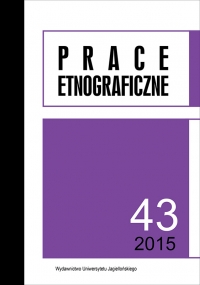Pamięć i pozostałości po sierotach północnokoreańskich na ziemiach polskich w latach 50 XX wieku – na przykładzie ośrodków w Płakowicach i Otwocku
Memory and residues of the North Korean Orphans
on Polish Territory in the 50’ of XX Century – on the Basis Płakowice and Otwock
Author(s): Oskar KubrakSubject(s): History, Military history, Political history, Social history, Recent History (1900 till today)
Published by: Wydawnictwo Uniwersytetu Jagiellońskiego
Keywords: North Korean orphan; Korean war; Płakowice; Otwock; Monument of Polish-North Korean Friendship; Kim Ir Sen
Summary/Abstract: One of the results of the Korean War in 1951–1953 was orphaned many children, which later reached the Polish to education. The two largest centers in which they were housed North Korean orphans were Płakowice and Otwock. During their stay children were under the care of Polish and Korean educators. Being orphans affected the many problems and cultural differences between caregivers and charges. Children are not accustomed to the domestic conditions of life, trying to live like they have learned during the war in Korea. North Korean orphans before departure left a different material traces, mostly preserved to this day. The composition of these material can include the most popular memorial. In Otwock area children set up two monuments in the obelisk forms. One of them survived intact, second one was destroyed and only a part is preserved.
Journal: Prace Etnograficzne
- Issue Year: 43/2015
- Issue No: 4
- Page Range: 387-396
- Page Count: 10
- Language: Polish

